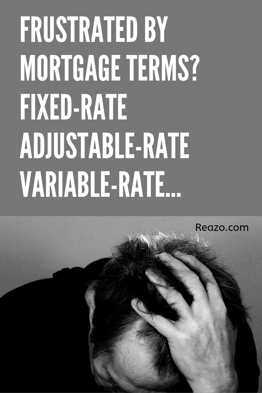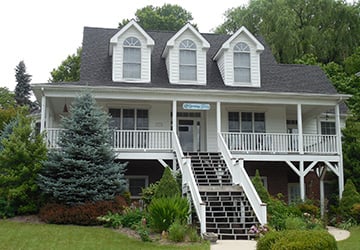You're ready to buy your first home and, as you sit down with your lender, he/she starts talking about a fixed-rate vs. an adjustable-rate mortgage (known as ARM). What's the difference and how do you decide which one's right for you? Let's dig in and compare them so you can feel confident choosing one that meets your needs.
 FHA programs offer fixed- and adjustable-rate mortgages which determine the interest rate you'll pay on your home loan. Fixed-rate is exactly what it sounds like: your interest rate will not change throughout the life of the loan. For example, if you lock in a 3.5% interest rate, you would pay this percentage until you've paid off your loan. Fixed-rate is typically associated with a 15- or 30-year mortgage. A 30-year fixed rate is most common among buyers because it provides the best interest rate and lowest monthly payment.
FHA programs offer fixed- and adjustable-rate mortgages which determine the interest rate you'll pay on your home loan. Fixed-rate is exactly what it sounds like: your interest rate will not change throughout the life of the loan. For example, if you lock in a 3.5% interest rate, you would pay this percentage until you've paid off your loan. Fixed-rate is typically associated with a 15- or 30-year mortgage. A 30-year fixed rate is most common among buyers because it provides the best interest rate and lowest monthly payment.
Adjustable-rate mortgages, also known as ARM's or variable-rate mortgages, are much different. This type of a mortgage usually starts out with a low interest rate for a predetermined period of time, then it changes periodically throughout the life of your mortgage. For example, you may start out with 3.25% interest rate and then a year later, your loan might change to a 5.0% interest rate. This higher interest rate may increase the amount you pay monthly on your mortgage and lengthen the life of your loan. If you're only planning on living in your home for a few years, an ARM might be a good option.
Standard 1-year ARMs exist along with ARM hybrid products, although other options are available. With a 1-year ARM, your interest rate would stay the same during a 1-year adjustment period then it would change each year after that. A 3-year ARM would hold the initial interest rate for the first 3 years then it would change.
Hybrid mortgages combine traits from an ARM and a fixed mortgage. ARM hybrids run for 1, 3, 5, 7, or 10-years and are illustrated as 3/1, 5/1, 7/1, etc. The first number indicates the amount of time for the fixed rate (initial period), and the second number indicates how often the rate will adjust after the initial period. For example, a 5/1 ARM has a fixed rate for the first 5 years, followed by annual rate adjustments for the life of the loan.
Interest rate caps are put in place to protect again large variations in interest rates. The first version is a periodic adjustment cap which limits the amount a rate can jump or drop from one adjustment period to the next, after the first adjustment. The second version, a lifetime cap, limits the interest rate increase over the entire life of the loan.
When looking at ARMs, talk to more than one lender before making a decision because even if they offer the same initial interest rate, they may offer different rate caps. In other words, over the life of the loan you could be paying more if you get your loan through a lender with high rate caps.
Whether you choose a fixed-rate mortgage or an ARM, consider how long you'll live in the house, how much risk you want to take on, if large debts are in your future (ex. car loan; new baby), if your job has the potential for a salary increase or possible layoff, and other factors that could affect your ability to pay your mortgage.
For more information on fixed-rate mortgages, ARMs and other financial considerations, visit:















